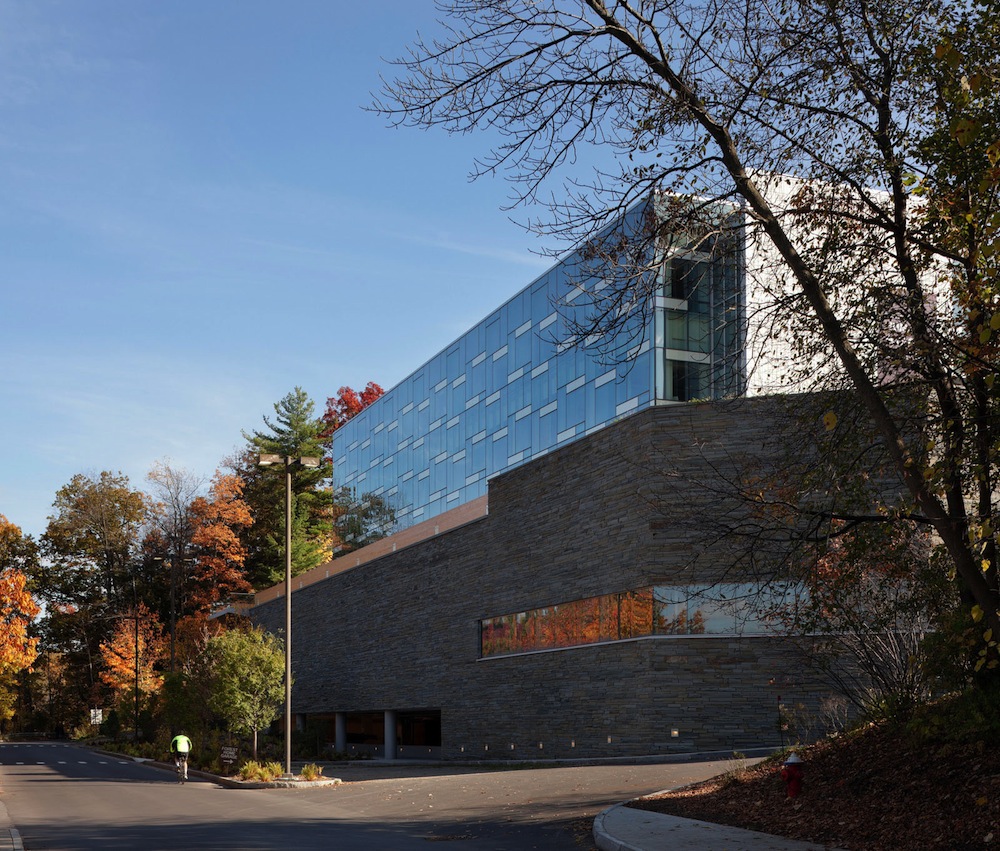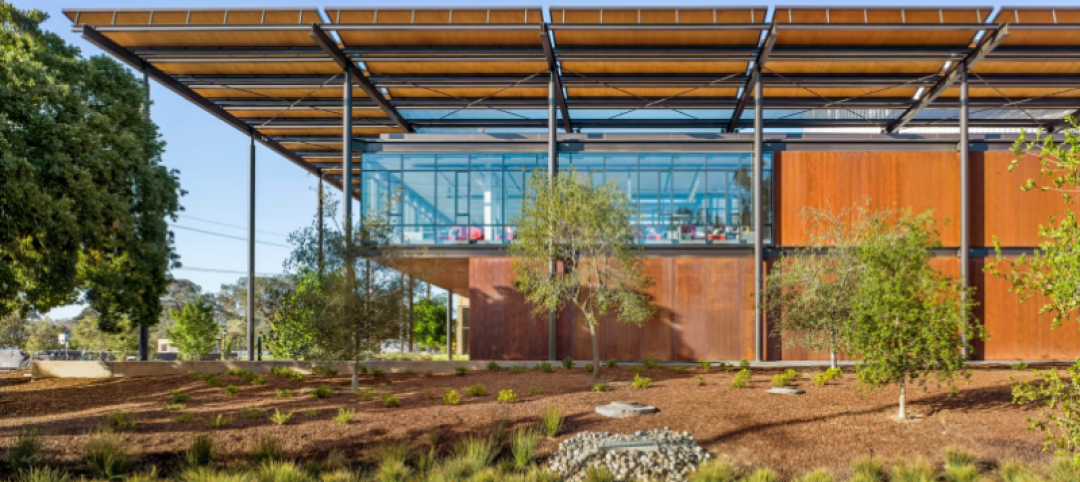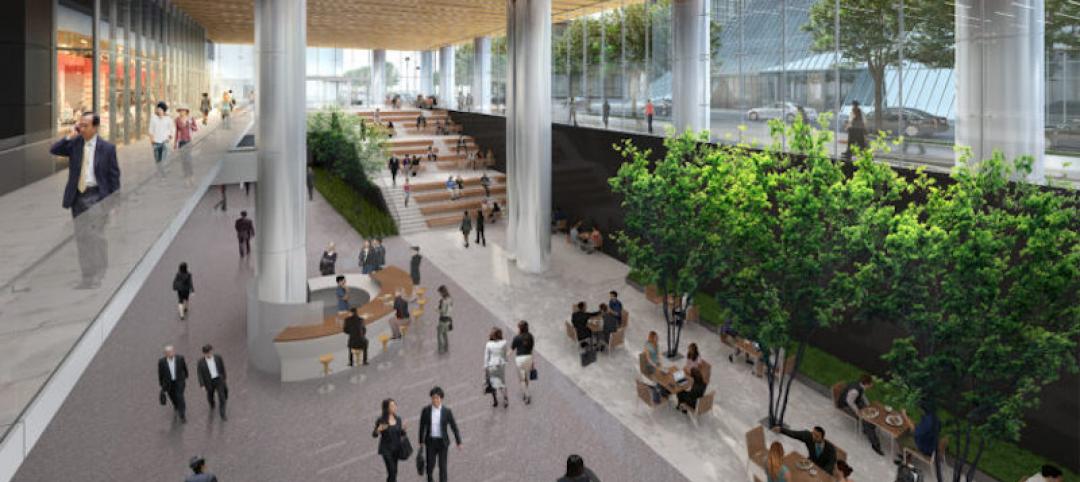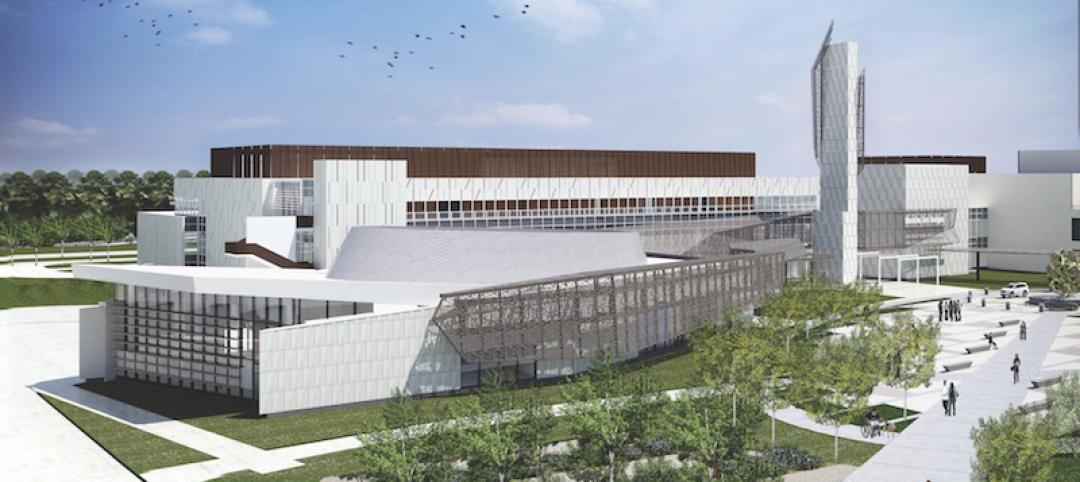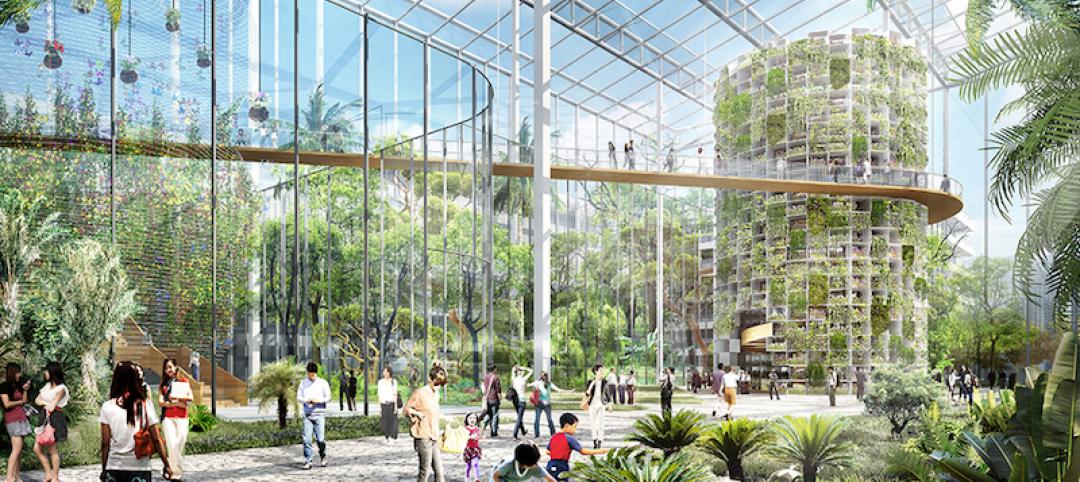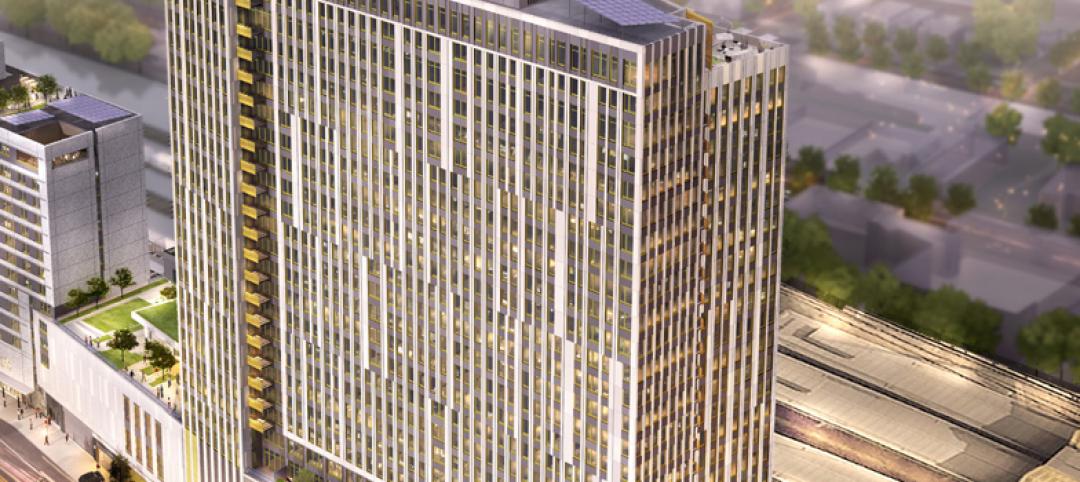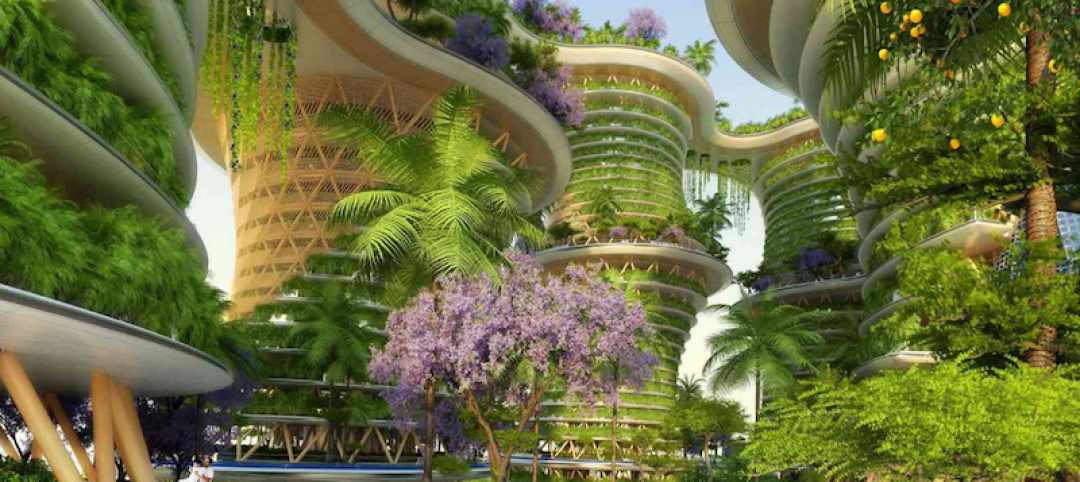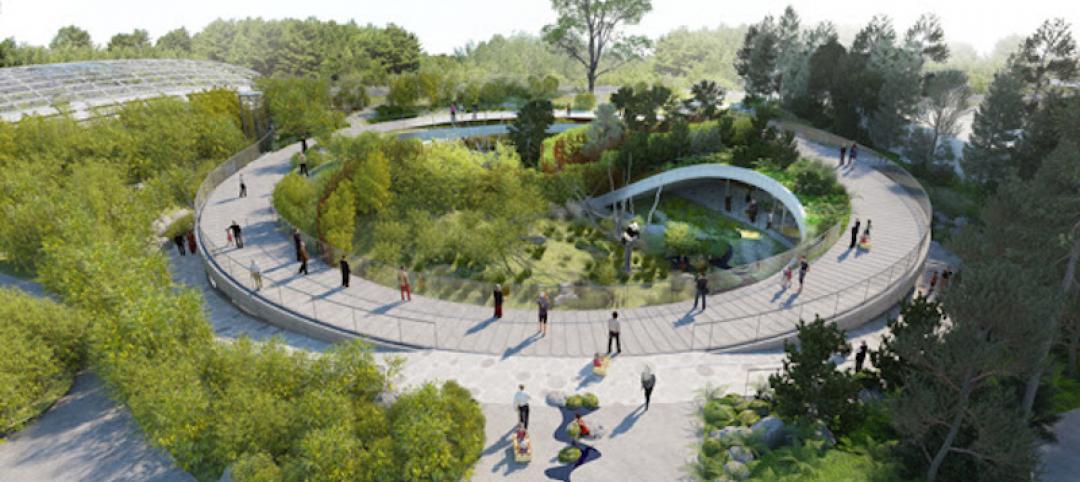Parking garages are no longer just nondescript concrete slabs. Earlier this month, the Green Parking Council (GPC) announced the first seven parking facilities in the country to achieve Green Garage Certification.
The title is determined by a rating system that factors in 48 elements of garage operation, structure, and technology, and recognizes sustainable practices in parking structure management.
The seven garages are located throughout the U.S. and have various uses. Four of them are office buildings: Brookfield’s Bank of America Plaza in Los Angeles; BG Holdco LLC’s BG Group Place in Houston; and Brookfield’s Silver Spring Metro Plaza and JLL’s Westpark Corporate Center, both in the Metro Washington D.C. area.
Cornell University’s Forest Home Garage in Ithaca, N.Y., is the lone school represented on the list, while Charles Square Hotel’s garage in Cambridge, Mass., and Och Ziff Capital Management Group Parking Acquisition Ventures’ Canopy Airport Parking in Denver are the only lodging and transportation venues on the list.
A variety of factors can make a parking garage green, from enhanced ventilation and energy-efficient lighting to greywater reuse and rainwater harvesting. Some have guidance systems to help drivers find their cars, others have tire inflation and electric car fueling stations, as well as car sharing and bicycle parking options.
The advantages of green garages not only help drivers but they also serve to benefit building owners. Reduced energy from lighting, ventilation, controls, and commissioning measures can keep operational costs around 25% lower than the national average.
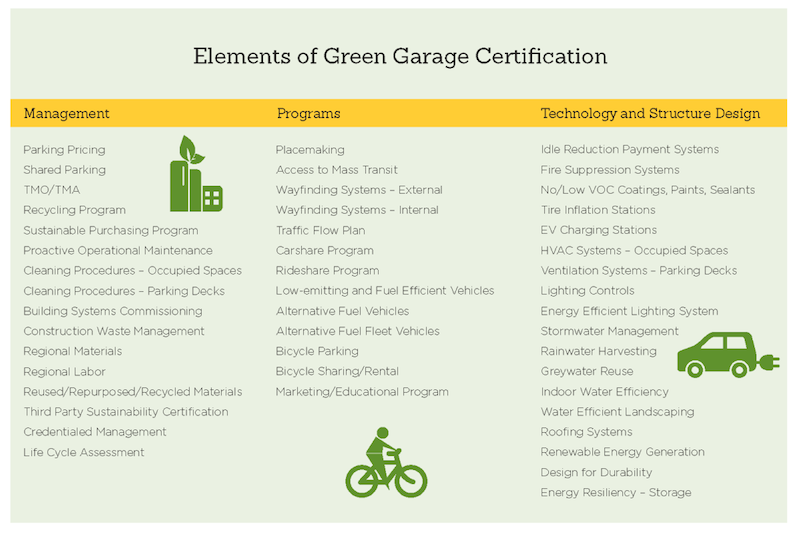
Related Stories
Sustainability | Apr 20, 2017
The American Institute of Architects select the 2017 COTE Top Ten Awards
In its 21st year, the Top Ten Awards highlight projects that exemplify the integration of great design and great performance.
Sustainability | Apr 19, 2017
Embracing the WELL Building Standard: The next step in green
When you consider that 90% of our time is spent in buildings, how these environments can contribute to workplace productivity, health, and wellness is the logical next step in the smart building movement.
Multifamily Housing | Apr 18, 2017
Hanging Gardens-inspired CLT residential development proposed for Birmingham
Garden Hill will provide an ‘oasis-like residence’ for Birmingham’s growing, multicultural student population.
Healthcare Facilities | Apr 14, 2017
Nature as therapy
A famed rehab center is reconfigured to make room for more outdoor gardens, parks, and open space.
Green | Apr 14, 2017
Sunqiao looks to bring agriculture back to Shanghai’s urban landscape
Vertical farms will bring new farmable space to the city.
Sustainability | Apr 13, 2017
How to make a concrete bunker livable
SOM’s design for New York’s second Public Safety Answering Center leans on strategically placed windows and the outdoor environment.
Green | Apr 11, 2017
Passivhaus for high-rises? Research demonstrates viability of the stringent standards for tall residential buildings
A new study conducted by FXFOWLE shows that Building Teams can meet stringent Passivhaus performance standards with minimal impact to first cost and aesthetics.
Codes and Standards | Apr 6, 2017
Product-specific EPDs seen as key aid to earning green building credits
The product-specific EPDs allow designers to more quickly earn a LEED v4 credit in the Materials & Resources category.
Sustainability | Apr 4, 2017
Six connected CLT towers create an urban forest in India
The mixed-use towers would each rise 36 stories into the sky and connect via rooftop skybridges.
Green | Mar 29, 2017
Copenhagen Zoo and BIG unveil yin yang-shaped panda habitat
The new habitat will sit between two existing buildings, including the Elephant House designed by Norman Foster.


